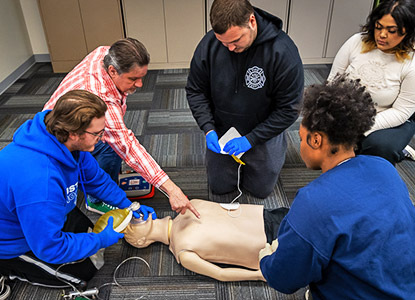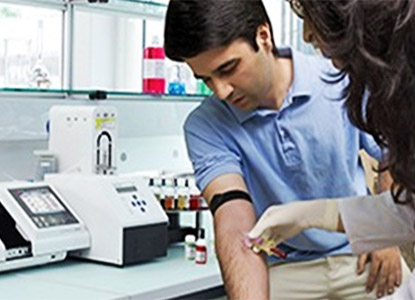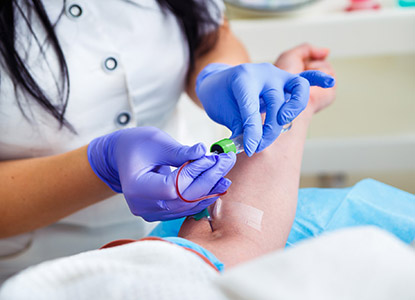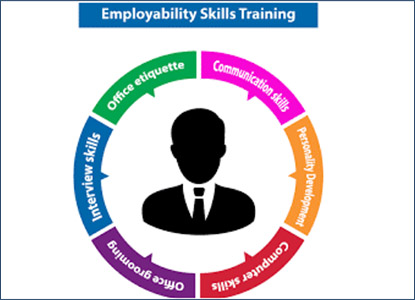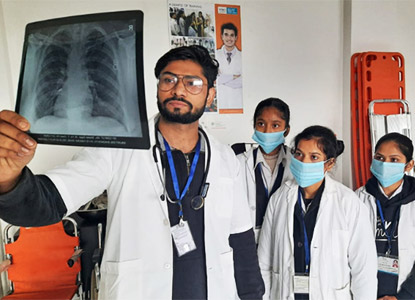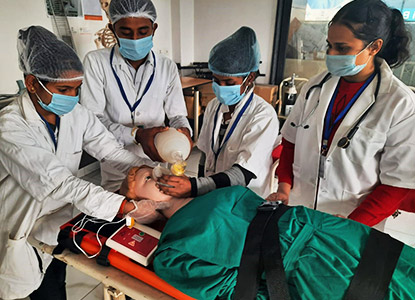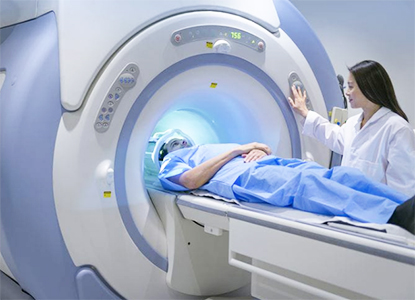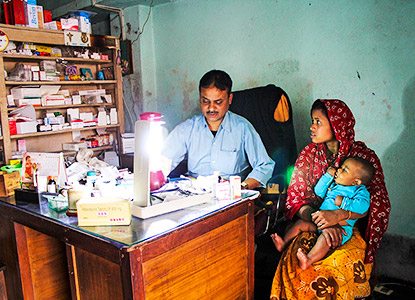
The General Duty Assistant (GDA) program is designed to train individuals to provide essential care to patients in hospitals and nursing homes. This course equips students with the knowledge and skills necessary to become efficient and certified General Duty Assistants (GDAs), who play a critical role in supporting healthcare teams by providing patient care under the guidance of Registered Nurses or other healthcare professionals.
Upon completing the course, students will be prepared to take the Healthcare Sector Skills Council (HSSC) competency exam and earn their certification, enabling them to work in healthcare settings effectively and professionally.
Objectives of the Course
After completing the General Duty Assistant (GDA) course, students will be able to:
-
Work Under Supervision: Assist Registered Nurses and other healthcare workers in providing basic patient care.
-
Personal Care Skills: Demonstrate essential personal care techniques, including bathing, dressing, feeding, and grooming.
-
Patient-Centered Care: Perform basic nursing skills and deliver care in a safe, compassionate, and competent environment.
-
Effective Communication: Use communication skills to collaborate with the nursing team and convey essential information about the patient’s condition.
-
Infection Control: Follow procedures and techniques to prevent the spread of infections and microorganisms.
-
Safety and Emergency Procedures: Demonstrate the ability to identify and implement safety protocols and emergency procedures when necessary.
-
Ethical and Legal Boundaries: Perform duties within the ethical and legal scope of practice, ensuring patient rights are respected.
-
Professionalism: Display professionalism in appearance, behavior, and work ethics.
Course Description
The General Duty Assistant (GDA) program covers essential topics to prepare students for a successful career in patient care. The course content includes:
-
Dealing with Patients: Learn how to approach and interact with patients to provide comfort and support.
-
Maintaining Hygiene and Cleanliness: Understanding the importance of maintaining a clean environment and personal hygiene in patient care.
-
Grooming and Personal Hygiene: Training in assisting patients with personal grooming tasks to maintain their dignity and well-being.
-
Assisting Nursing Staff: Assist nursing staff by following patient care plans, observing patient conditions, and reporting changes accurately.
-
Understanding Human Anatomy and Physiology: Basic knowledge of the normal physiology and anatomy of the human body to understand patients’ health needs.
-
Hospital Bed Making: Learning the proper techniques for making hospital beds, ensuring patient comfort and cleanliness.
-
Patient Admission Process: Understanding the procedures involved in admitting patients to the hospital, including paperwork and initial care.
-
Transportation of Patients: Proper techniques for moving and transferring patients within the hospital or nursing home setting, ensuring patient safety.
-
Universal Safety Procedures: Awareness and application of universal safety standards and protocols in healthcare settings.
-
Biomedical Waste Management: Proper handling, segregation, and disposal of biomedical waste to ensure a safe and hygienic environment.
Career Opportunities
After completing the General Duty Assistant (GDA) course, graduates can work in various healthcare settings, including:
-
Hospitals: Providing support to nursing staff and assisting with patient care in a hospital setting.
-
Nursing Homes: Assisting elderly or disabled patients with their daily activities and healthcare needs.
-
Clinics: Supporting healthcare professionals in outpatient care and assisting patients during their visits.
-
Home Healthcare: Providing care to patients at home under the supervision of a healthcare team.
- Public Health Agencies: Working in public health centers or NGOs to assist in healthcare programs.







